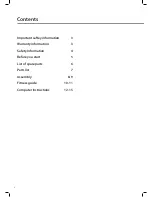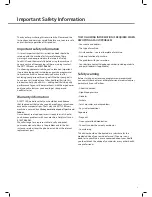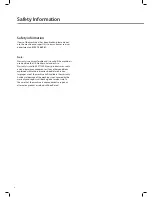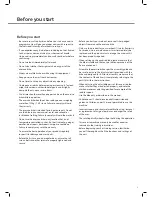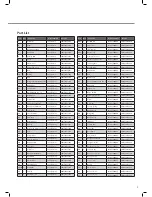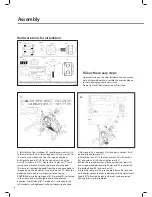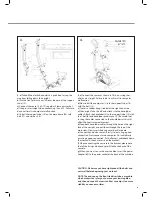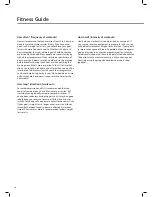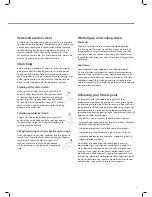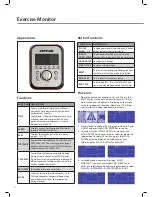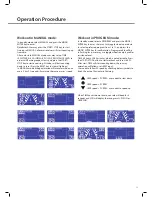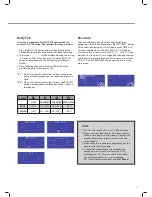
10
Fitness Guide
How often? (frequency of workouts)
Doctors recommend that you exercise at least 3 to 4 days per
week to maintain cardiovascular fitness. If you have other
goals such as weight or fat loss, you will achieve your goal
faster with more frequent exercise. Whether it’s 3 days or 6
days, remember that your ultimate goal should be to make
exercise a lifetime habit. Many people are successful staying
with a fitness programme if they set aside a specific time of
day to exercise. It doesn’t matter whether it’s in the morning
before breakfast, during lunch hour or while watching the
evening news. What’s more important is that it’s a time that
allows you to keep a schedule, and a time when you won’t be
interrupted. To be successful with your fitness programme,
you have to make it a priority in your life. So decide on a time,
pull out your diary and pencil in your exercise times for the
next month!
How long? (duration of workouts)
For aerobic exercise benefits, it’s recommended that you
exercise from between 25 and 60 minutes per session. But
start slowly and gradually increase your exercise times. If
you’ve been sedentary during the past year, it may be a good
idea to keep your exercise times to as little as five minutes
initially. Your body will need time to adjust to the new activity.
If your goal is weight loss, a longer exercise session at lower
intensities has been found to be most effective. A workout
time of 50 minutes or more is recommended for best weight
loss results.
How hard? (intensity of workouts)
How hard you workout is also determined by your goals. If
you use your exercise equipment to prepare for a 5K run, you
will probably workout at a higher intensity than if your goal is
to improve your general fitness. Regardless of your long term
goals, always begin an exercise programme at low intensity.
Aerobic exercise does not have to be painful to be beneficial!
The easiest way to measure intensity is by monitoring your
heart rate using the grip pulse handlebars or chest strap
(optional).


